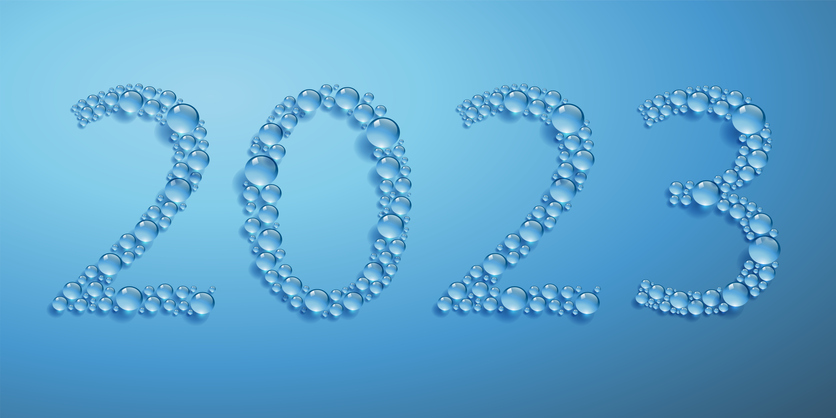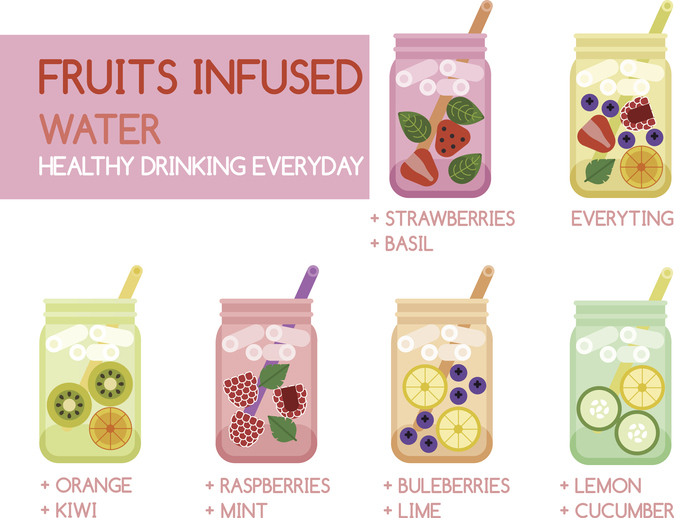The Best Change You Can Make in 2023 May Be Drinking More Water. Here’s Why

By Joy Stephenson-Laws, JD, Founder
I’m not really one for new year's resolutions. Ninety-one percent of Americans will not achieve their new year’s resolutions. But if you are not good about drinking enough water throughout the day, make a concerted effort to get better about this in 2023.

A recent study conducted by the National Institutes of Health (NIH) and published by eBioMedicine, found evidence strongly suggesting that not maintaining significant hydration increases the likelihood of aging faster, developing chronic diseases and an earlier death.
Honestly, I’m not surprised. Depending on our sex and other factors such as age, our bodies are made of about 60 percent water on average. Furthermore, water is one of the six basic nutrients you need to live. The others are protein, carbohydrates, fats, vitamins and minerals, but water is the only nutrient where absence will cause death within days.
The NIH study analyzed sodium blood levels, which can be an indicator of how hydrated a person is, in middle-aged (45-66) people from data spanning more than 30 years. Higher sodium blood levels mean a less hydrated state.
“Data collection began in 1987 when participants were in their 40s or 50s, and the average age of participants at the final assessment during the study period was 76,” according to this CNN report discussing the study.
“Adults with levels above 142 mEq/L had a 10% to 15% higher chance of being biologically older than their chronological age compared with participants in the 137 to 142 mEq/L range. The participants with higher faster-aging risk also had a 64% higher risk for developing chronic diseases such as heart failure, stroke, atrial fibrillation, peripheral artery disease, chronic lung disease, diabetes and dementia.”
“And people with levels above 144 mEq/L had a 50% higher risk of being biologically older and a 21% higher risk of dying early. Adults with serum sodium levels between 138 and 140 mEq/L, on the other hand, had the lowest risk of developing chronic disease. The study didn’t have information on how much water participants drank.”
Although we do not know how much water these people were drinking, the status of hydration based on sodium blood levels over a significant period of time and how they appeared to impact health is very telling.
Water helps regulate body temperature and deliver oxygen throughout the body, balances the body’s chemicals and so much more. Being dehydrated may even alter your brain shape.
How to be proactive about hydration.

If you are not already diligent about drinking water, it’s time to step up your efforts and get drinking! Drinking water first thing in the morning is a great way to start your day off and get your body hydrated. Keep a reusable water bottle with you at all times. Add herbs, such as mint, to give your water more flavor. You can also add berries to flavor your water. In addition to eating watermelon (which, hence the name, is very rich in water), you can snack on cucumbers for hydration and nutrients. As a general rule of thumb, fresh fruits and vegetables have a higher water content than most foods.
I know it’s not sexy, but get in the habit of checking the color of your urine. Very yellow or almost brown urine may be a sign of dehydration. If you have a headache, that may also be a sign that you are dehydrated. Do not wait to feel thirsty before you drink water. You might also want to consider drinking alkaline water. In addition to this, because drinking alcohol is extremely dehydrating and depletes the body of vitamins and minerals I highly recommend limiting or abstaining from alcohol.
For more information regarding proper water intake, check out this pH Labs blog. If you are looking to get healthier in 2023 and be more proactive, drinking water may be an easy first step in this process. Limit caffeine and sugary beverages so that you have more room for water in your daily life.
Finally, you might also want to consider Ringer’s Lactate Solution.
Cheers to a healthier 2023. Enjoy your healthy life!
Disclaimer: This article is not intended to provide medical advice. Please consult with your doctor or another competent healthcare practitioner to get specific medical advice for your situation.
The pH professional health care team includes recognized experts from a variety of health care and related disciplines, including physicians, attorneys, nutritionists, nurses, and certified fitness instructors. This team also includes the members of the pH Medical Advisory Board, which constantly monitors all pH programs, products, and services. To learn more about the pH Medical Advisory Board, click here.







